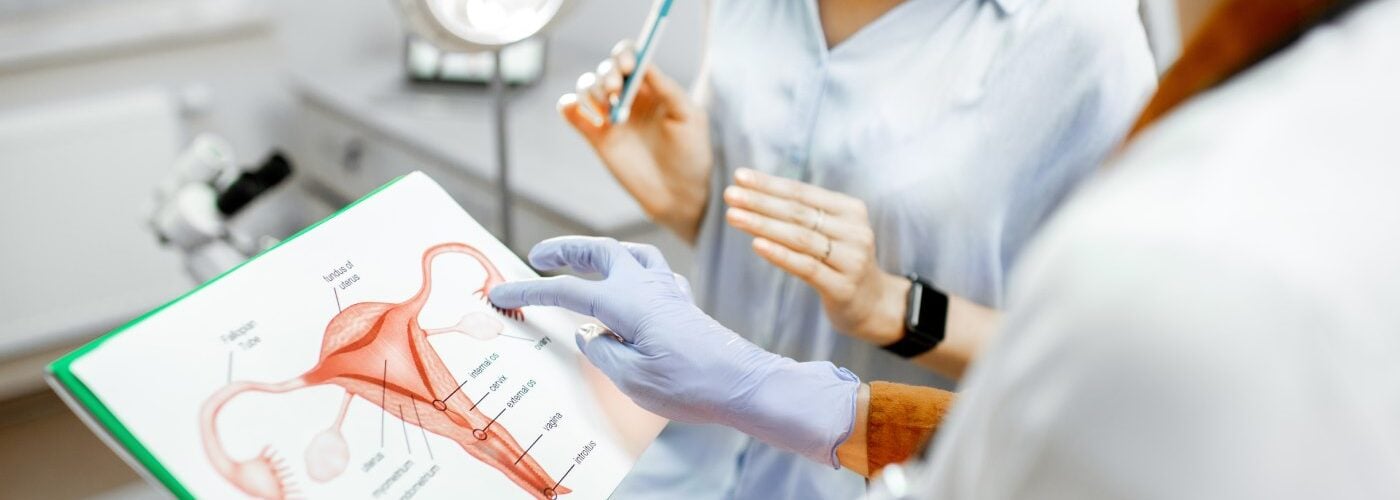
Vaginismus is a sexual dysfunction characterized by the involuntary contraction of the vaginal muscles, leading to vaginal tightness. As a result, it causes pain, discomfort, and limitations for the woman.
According to a review compiled by Leiblum (2006), based on the only known European epidemiological study to date, mild or occasional vaginismus has a prevalence of approximately 5%. Manifest vaginismus—frequent or severe—affects around 1% of women.
In this article, we explore the origin of vaginismus, how it is treated, and how it affects women who wish to become mothers.
What Is Vaginismus?
Dr. Clara Colomé, Medical Director at IVI Mallorca, provides a definition of this condition: “Vaginismus manifests by a partial or total involuntary contraction of the pelvic floor muscles around the vagina, making penetration difficult or impossible. However, having vaginismus doesn’t mean a woman cannot feel aroused or experience pleasure. It mainly limits vaginal intercourse, and therefore natural conception becomes more complicated.”
What Are the Causes of Vaginismus?
Although there are many possible causes of vaginismus, they can be divided into two main categories:
Psychological Causes
These reasons are behind the majority of vaginismus diagnoses:
- Taboos or prejudices
- Lack of knowledge about female anatomy
- Low self-esteem
- Past trauma
- Fear of potential pregnancy
- Negative previous sexual experiences
- Negative gynecological experiences
- Rape, abuse, or sexual assault
- Anxiety or depression
Physiological Causes
While less common, identifying these causes is important in determining the source of the problem:
- Rigid hymen
- Vaginal infections or ulcers
- Inflammation of the Bartholin glands, located at the vaginal opening and responsible for lubrication
- Trauma related to childbirth or abortion
- Decreased estrogen levels (common during menopause)
- Pelvic tumors
Symptoms of Vaginismus
Depending on the degree of vaginal tightness and associated discomfort, vaginismus can range in severity. The most common symptoms experienced by patients include:
- Pain during vaginal penetration (tampons, menstrual cups, vaginal suppositories, etc.)
- Burning, stinging, or discomfort during sexual intercourse (dyspareunia)
- Difficulty undergoing certain gynecological exams, such as Pap smears
- Muscle spasms in other areas, such as the legs or lower back
- Other reactions during intercourse, such as trouble breathing or heart palpitations
- Decreased libido
Types of Vaginismus
Primary vaginismus refers to the inability to have penetrative sex from the beginning of sexual activity, while secondary vaginismus occurs when a woman who previously had pain-free penetrative sex later develops the condition.
Dr. Colomé explains: “Primary vaginismus occurs in women who have never been able to have penetrative intercourse. It is more commonly diagnosed in adolescents or young women and is primarily linked to psychological factors. In contrast, secondary vaginismus occurs in women who were once able to have penetrative sex but later developed difficulty with or an inability to do so.”
Primary Vaginismus
Women who have never been able to engage in vaginal penetration. It is more common among girls and adolescent women, usually due to psychological causes.
Secondary Vaginismus
Women who previously had no issues with penetration but later developed the condition. This type is more commonly linked to physical causes.
Treatment for Vaginismus
Treating this sexual dysfunction requires a comprehensive and multidisciplinary approach, involving both psychological and gynecological care. The therapeutic plan may include tools such as pelvic floor physical therapy, cognitive-behavioral therapy, the gradual use of vaginal dilators, and, in specific cases, other psychological interventions tailored to the patient’s needs. “In any case, a holistic approach is key to successful treatment. And if a partner is involved, communication is essential,” adds the doctor.
Does Vaginismus Cause Infertility?
The main barrier vaginismus presents for women who want to conceive is the difficulty or impossibility of having penetrative sex. Therefore, natural conception may not be possible. However, the involuntary contraction of the vaginal muscles does not affect other reproductive functions and does not increase the risk of miscarriage.
Vaginismus and Sexual Relationships
As mentioned above, one of the major limitations of vaginismus is the inability to have penetrative sex. This should be discussed openly with a partner to foster understanding and avoid the development of negative emotions. On the other hand, this limitation does not mean that a woman cannot feel aroused or experience sexual pleasure.
To improve the quality of life for someone living with vaginismus, it is essential to seek care from professionals who specialize in this condition
Assisted Reproduction: An Alternative Path to Motherhood
Fortunately, many women can resume a normal sex life once they overcome the condition. In cases where this isn’t fully possible, assisted reproduction techniques can help these patients fulfill their desire to become mothers. Depending on the diagnosis, they may undergo IVF or intrauterine insemination.
“Although vaginismus may be an obstacle for some women of reproductive age, it is not an insurmountable barrier thanks to today’s personalized approach and the wide range of assisted reproduction methods available. The most common options in these cases include intrauterine insemination, which involves placing pre-selected sperm directly into the uterus, and in vitro fertilization (IVF), where a woman’s eggs are retrieved and fertilized in a lab dish with sperm. So, experiencing this condition is not incompatible with motherhood,” concludes Dr. Colomé.
We Can Help You Become a Mother
Whatever your situation, at IVI every patient is unique, and treatment is tailored to your specific diagnosis. You can contact us by filling out the appointment request form on our website, and our team will get in touch with you.
Dr. Clara Colomé
Gynecologist and Director of IVI Mallorca
Dr. Colomé studied Medicine at the University of Barcelona and completed her residency in Gynecology and Obstetrics at the USP Dexeus University Hospital. She pursued additional training in gynecological endocrinology, colposcopy, and ultrasound diagnostics, and participated in a research project on heavy vaginal bleeding during puberty.
She completed her Master’s degree in Reproductive Medicine at IVI. Since 2022, she has been the Director of IVI Mallorca, where she also cares for international patients.
Bibliography:
Leiblum, S. R. (Ed.). (2006). Women’s sexual function and dysfunction: Study, diagnosis and treatment. Taylor & Francis. Recuperado de https://doctorlib.org/gynecology/women-sexual-function/6.html






Comments are closed here.